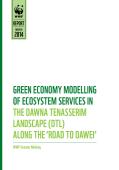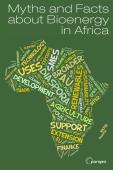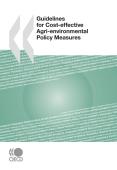This chapter in Ensuring Good Global Governance through Trade presents an analysis of sustainable development goals in the context of two mega-regional trade agreements: the Transatlantic Trade and Investment Partnership (TTIP) and the Trans-Pacific Partnership (TPP). These preferential trade agreements present a more efficient vehicle by which to promote sustainable development than the multilateral trading platform. The chapter discusses sustainable development and energy within the proposed TTIP. The TTIP aims to further economic growth, investment and trade between the United States and the European Union (EU), and could potentially have a very large impact as the U.S.-EU trade and investment flows are sizeable and a critical element in global commerce. The chapter argues that the TTIP has the potential to foster sustainable development, energy efficiency, and energy security.

This report describes a pilot project to design an integrated framework to inform and support land use planning. It analyses interaction of social, economic and environmental factors in shaping future land use needs through a transparent system dynamics simulation model and generates projections up to 2035 to analyse the short, medium and longer-term consequences of road construction on society and land use in the DTL, along the ‘Road to Dawei’. The aim is to allow policymakers, land use planners and other interested stakeholder to test the multi-dimensional impact of green economy interventions aimed at improving sustainability in the area. Results are communicated in biophysical and economic terms, also including the valuation of natural capital (stocks, flows and ecosystem services). Though still in initial stages of development, this study has already helped understanding the key drivers of change in the area, identifying data collection needs, and defining their use to carry out a green economy analysis.

Eco-innovation will be a key driver of industry efforts to tackle climate change and realise "green growth" in the post-Kyoto era. Eco-innovation calls for faster introduction of breakthrough technologies and for more systemic application of available solutions, including non-technological ones. It also offers opportunities to involve new players, develop new industries and increase competitiveness. Structural change in economies will be imperative in coming decades.
This book presents the research and analysis carried out during the first phase of the OECD Project on Sustainable Manufacturing and Eco-innovation. Its aim is to provide benchmarking tools on sustainable manufacturing and to spur eco-innovation through better understanding of innovation mechanisms. It reviews the concepts and forms an analytical framework; analyses the nature and processes of eco-innovation; discusses existing sustainable manufacturing indicators; examines methodologies for measuring eco-innovation; and takes stock of national strategies and policy initiatives for eco-innovation.

